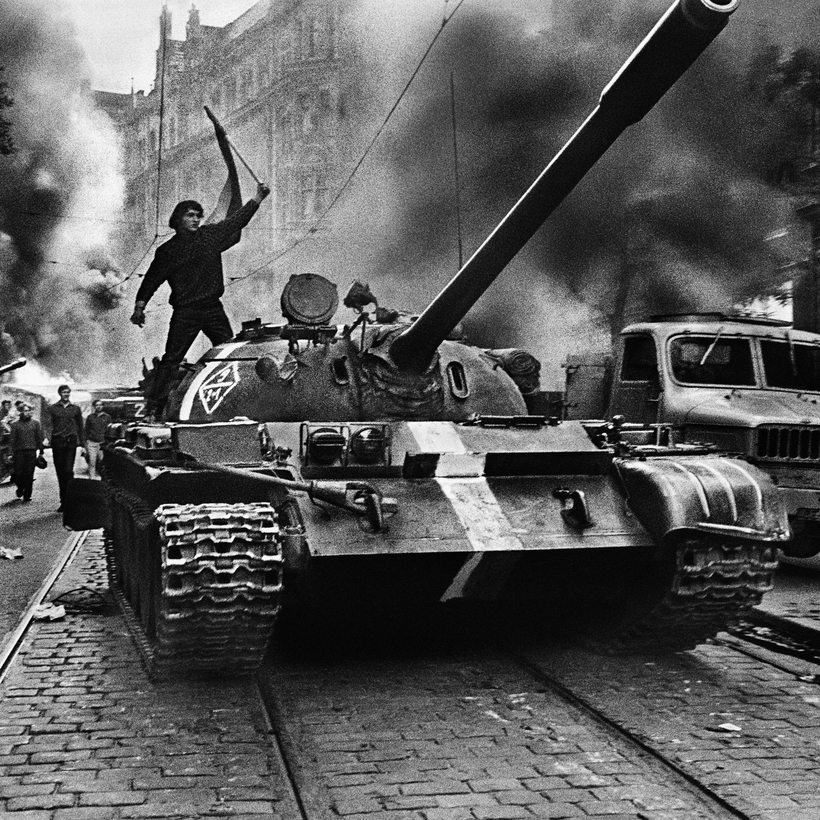HarperCollins has had the inspired idea just now of reprinting in book form a 40-year-old essay by Milan Kundera, which turns out to be the golden key to unlocking the meaning of the Russo-Ukrainian War of our own moment, or so it seems to me.
Kundera, who had by that point in his life abandoned his home in Communist Czechoslovakia for a better existence in France, called his essay “The Tragedy of Central Europe,” and published it in the distinguished Paris journal, now lamentably defunct, Le Débat.
It became famous. Translations ran in The New York Review of Books and in other such journals around the world. Then, after the revolutions of 1989 had taken place and the Cold War had faded into the past, the memory of his famous essay likewise faded. That was unfortunate.
Kundera’s purpose, back in 1983, was to persuade his readers to set aside the conventional, political thinking that pictured the Cold War as a gigantic conflict of imperial systems, or blocs: Western Europe versus Eastern Europe. Or it pictured a conflict of political principles: liberal democracy versus Communism. And it pictured an underlying anthropological division between West and East, with the Soviet bloc animated by a “Slavic soul” that could scarcely be understood by the more rational denizens of the West. Kundera rejected all of that.
In his interpretation, the Cold War border that separated the two blocs was merely an accident of war, artificially and superficially drawn across the Continent at the conclusion of World War II by the progress of the Allied and Soviet armies as they pushed eastward and westward against the Germans.
But deeper down was Europe’s ancient and authentic division. This was a vestige of the later Roman Empire and its fateful split between imperial capitals, Byzantium and Rome, which generated, on one side, the Eastern Orthodox Church and its cultural traditions, which melded eventually with the Russian Empire and its thirsty desire to swallow neighboring nations. And the ancient division generated, on the other side, the Catholic Church and its own traditions, which generated the Renaissance, the spirit of Western civilization, and the modern age—“the era founded on the authority of the thinking, doubting individual, and on an artistic creation that expressed his uniqueness,” in Kundera’s phrase. The “Slavic soul” had nothing to do with any of this.
During the Cold War there were, in Kundera’s interpretation, not two but three Europes. Eastern Europe was Russia. The small nations to its west were Central Europe, and they did not identify with the Russian tradition. They identified with Western civilization and its universal aspirations, even if they were trapped behind Soviet lines. But the small nations were distinguishable, even so, from Western Europe.

The Western European impulse was domineering in a fashion of its own, convinced that capital-H History was Western Europe’s guarantor of power and success. But the Central European nations nursed a sense of fragility—the fragility of their languages and cultures, sometimes on the edge of extinction. Their tone was ironic, mocking, whimsical—the tone that you can see in their leading writers, whom Kundera took to be Hermann Broch, Robert Musil, Jaroslav Hašek, and Franz Kafka (though he must have had himself in mind as well).
The true history of the Cold War, from Kundera’s standpoint, was not fundamentally the story of NATO and its standoff with the Soviet bloc. It was the story of the fragile nations and their struggle to preserve their languages and culture. This was a story of uprisings and rebellions against the Soviets in Hungary and Poland in 1956, in Poland and Czechoslovakia in 1968, in Poland yet again, and so on through the following years. Those were uprisings and rebellions for cultural identity, and they turned out to be, as eventually became clear, the runway that allowed the regional revolution in 1989 to ascend into triumph. The Jews of Central Europe seemed to him one more such nation—“the small nation par excellence”—who played their own role by creating the “spiritual unity” of everyone else. Zionism seemed to him one more expression of a small nation’s decision to go on existing.
Kundera’s purpose was to persuade his readers to set aside the conventional, political thinking that pictured the Cold War as a gigantic conflict of imperial systems.
And the Ukrainians? Kundera in 1983 devoted to them only a single shocked footnote: “One of the great European nations (there are nearly forty million Ukrainians) is slowly disappearing. And this enormous, almost unbelievable event is occurring without the world realizing it.” But the footnote was prophetic.
No one who reads Kundera’s essay today will fail to recognize that Ukraine has proved to be still another rebellious Central European nation. It is true that Ukraine’s identity draws from Orthodoxy and not from Catholicism. Kundera might have been a little too dismissive of Orthodoxy’s possibilities. But the peppery role of Ukraine’s president, Volodymyr Zelensky, whose Jewishness everyone has noticed, conforms perfectly to Kundera’s picture of the larger Central European resistance and the Jewish place within it.
HarperCollins has based its edition of Kundera’s essay on a volume that Éditions Gallimard brought out in France in 2021, prior to Russia’s invasion of Ukraine. The essay by itself is slender. Gallimard fattened it into a small book by including an additional essay of Kundera’s from 1967, together with well-informed introductory comments by the historian Pierre Nora, who was one of the editors of Le Débat, and by the Franco-Czech intellectual Jacques Rupnik. HarperCollins has reproduced the whole thing in a fluent translation by Linda Asher and Edmund White. But the result is a book that cries out to be read in the light of the war in Ukraine.
If there were ever a possibility of bringing out Kundera’s essay in yet another edition, I hope that a publisher might consider pairing it instead with Paul Valéry’s essay from 1919, “The Crisis of the Spirit,” on the need for Europeans to reflect on the meaning of their civilization and its ancient roots. It was Valéry who injected those themes into modern literature. Kundera is his heir. Valéry’s essay may be preferable in some respects to Kundera’s, more willing to recognize that Western civilization is capable of its own horrors. Those two essays, Valéry’s “The Crisis of the Spirit” and Kundera’s “The Tragedy of Central Europe,” seem to me, in any case, to be the grand literary articulations of an attractive and variegated Western spiritual identity, essays composed in a tone that only the greatest of writers can produce: deep, humane, natural, and morally alert. They are great essays, worthy of the heroism that we are seeing right now in Ukraine.

Paul Berman is the author of several books, including A Tale of Two Utopias: The Political Journey of the Generation of 1968


